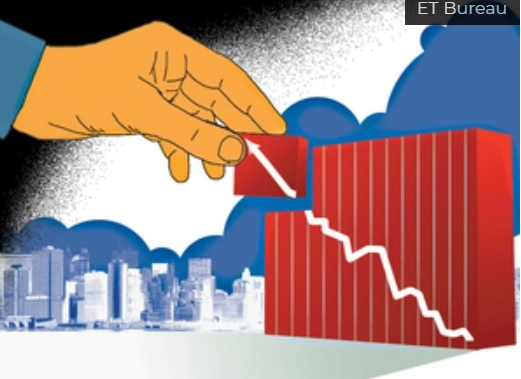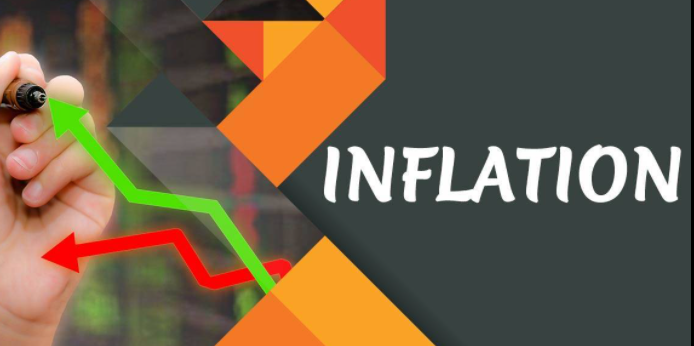Turkish Economist: Middle East crisis could derail the economy
 ekonomi-risk
ekonomi-risk
The chaos in the Middle East prevails as the İsrael-Palestinian conflict has merged into a war once again.
This environment, if prolonged, will have negative effects on Türkiye, which had been on the brink of a balance of payments crisis due to its irrational economic policy for a considerable period and has been struggling to get back on her feet by returning to “rational” policies after May elections.
There are two main channels of impact.
Oil and financing
First, the energy costs: The price of crude oil -Brent barrel- was around 72 US Dollars at the end of May and rose to 94 dollars by the end of September. Before the Hamas attack, it had fallen to 84 dollars. As of now, there is no significant impact on energy prices. Nonetheless, if energy complex prices increase further from already high levels, the current account deficit will widen, making it challenging for Turkey which struggling to finance it.
Second, the financing channel: In the first eight months of 2023, Turkey recorded a current account deficit of 43.1 billion dollars. Only 21.6 billion dollars of this deficit was financed by ordinary capital inflows – foreign direct investment, portfolio inflows, and loans. The rest was financed by CBRT reserves (18.6 billion dollars) and the net errors and omissions account (3.1 billion dollars), which sums up inflows of unknown origin, but believed to originate from criminal activity and Turkish wealth abroad.
Deja vu
There was a similar picture in 2022. This is the phenomenon I have above mentioned, ‘coming to the brink of a balance of payments crisis’. This is the main issue that Mehmet Simsek’s rationalization program must solve.
Middle East chaos and the IMF
However, if the environment in the Middle East after the Hamas attack becomes more chaotic and prolonged, capital inflows to Turkey through standard channels may decrease due to a decline in the international appetite for risk. In addition, depending on Turkey’s position, would the lifeblood of the bilateral agreements it had previously made with the Gulf countries remain valid?
On October 6, the IMF published a short assessment note on Turkey which supported the ‘rationalization’ program. However, while expressing its endorsement for the ‘right direction’ economic policy is taking, IMF also warned between the lines. It emphasized the following points:
“The balance of risks is to the downside. On the domestic front, the key risk is that the policy shift now underway loses its strong momentum, eroding confidence and leading to increased FX demand and reserve drain.”
Many remain cautious
On October 9, the Financial Times published an assessment of the Turkish economy, which concluded with a Fitch credit rating agency expert saying: “It will take time to see if this time is different . . . because we’ve had so many reversals in the past.”
Shortly after, the press published excerpts from a report summarizing the views of participants in Minister Mehmet Simsek’s meetings with representatives of major international financial institutions in London. According to Bank of America’s report, participants thought it was too early to invest.
Turkey has a large economy; if reasonable economic policies are implemented and if there is no turmoil in the global financial system, it is expected to have no external financing problems. Moreover, if a reasonable economic program has a structural pillar, the need for financing will gradually decrease.
Reasons for concern
So why is the road back to rationality bumpy? Why are there doubts that Erdogan may step back?
The first reason is, of course, the recent past. With the appointments of Naci Ağbal as the Governor of the Central Bank (CBRT) and Lütfü Elvan as the Minister of Treasury and Finance, it was thought that the journey to monetary and fiscal discipline had begun. Unfortunately, the process ended quickly. Not only did it end, but also it was followed by a succession of decisions that bloated the exchange rate risk, and inflation. Some experts claim that this is likely to happen again. Moreover, there is also the concern of whether there will be a deviation from austerity policies as local elections approach.
Second, fiscal discipline deteriorated significantly ahead of May 2023 elections. Erdogan essentially emerged victorious by raising the budget deficit. Repairing the physical destruction caused by the devastating February earthquake is only possible with expenditures from the budget, which significantly increases the permanent deficit.
Inflation expectations
These two adverse trends apply not only to the rest of 2023 but also to 2024 and 2025 in part. To bring the budget deficit down to more acceptable levels, taxes were hiked after the elections. Despite this measure, budget deficits in 2023 and 2024 will still be high. In short, it may be required to take additional measures, to reduce the budget deficit to the promised level, i.e. 5% of GDP, with 2% accruing because of earthquake rebuilding.
Third, inflation is quite high and is expected to increase, reaching over 70 percent in June 2024.
It is not clear at all whether CBRT has been given the mandate by Erdogan to tighten monetary policy toa degree which would anchor inflation expectations.
Policy rate to be raised to 40 percent
Simply said, there is not much monetary policy can do to significantly reduce inflation a few months ahead. Nonetheless, with the right decisions, it can reverse the inflationary expectations beginning the spring of next year.
The question then is what the right decisions mean. The end-2024 inflation forecasts should be a signpost for the monetary authority for the right path. Both the CBRT’s and the MTP’s end-2024 inflation forecasts are 36 percent. In the aforementioned reports, TEPAV and the IMF forecast end-2024 inflation at 39 percent and 46 percent, respectively.
Consequently, the policy rate, which is currently 35 percent, needs to be raised to at least 40 percent as soon as possible. Is it possible? Instead, will interest rate hikes be spread over time? Spreading rate hikes over time has costs, and creates the impression of chasing inflation rather than suppressing it. Unruly expectations augments the difficulty of raising the interest rate to level to cool down domestic demand.
This vicious cycle leads to resorting to unpalatable side-tracks for financial stability – or rather, postponing the elimination of old side-tracks, such as locking up the swap market, or forcing banks to hold low-yielding government debt.
Unfavorable external conditions
Fourth, external conditions are not moving in our favor. At the beginning of this article, I mentioned the possible consequences of the Israeli-Palestinian crisis in the Middle East that started with the Hamas attack. There are other issues as well. Globally important central banks have raised policy rates to quite high levels. They are expected to raise them further rather than lower for a certain time. This is not a welcome development for countries like ours that require steady and ample external financing.
There is also the risk that the 2024 growth in the European Union, our leading export partner, will fall below the already low 2023 growth level.
By Fatih Ozatay, economist and former member of CBRT governing council






